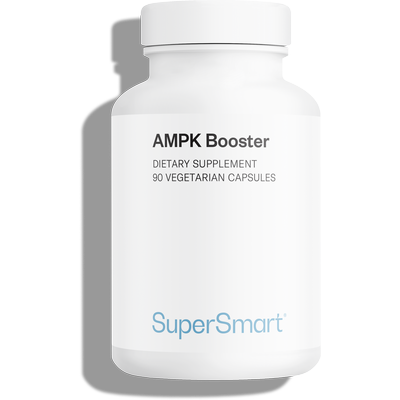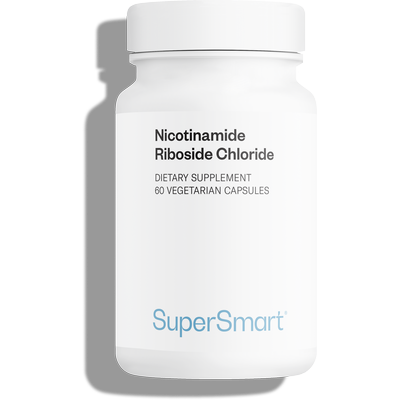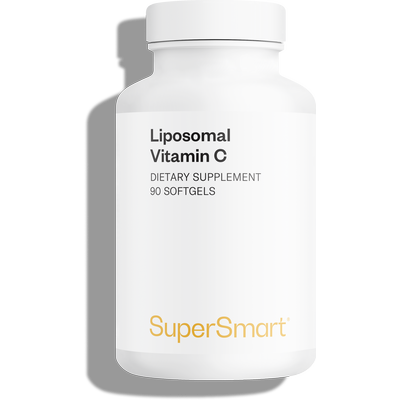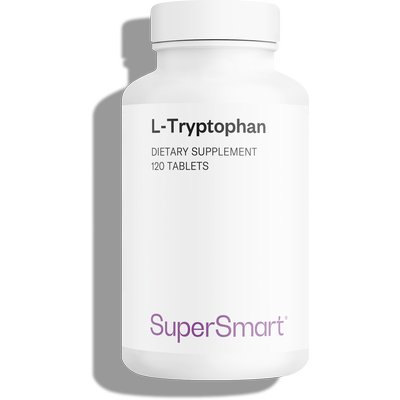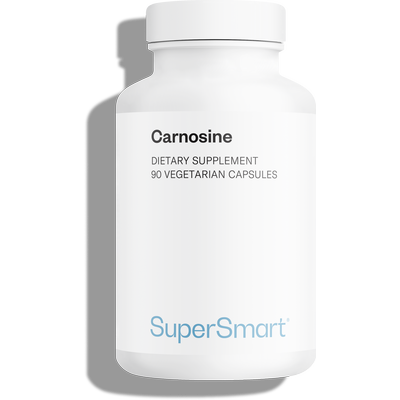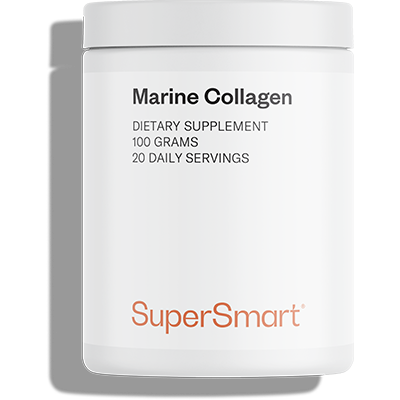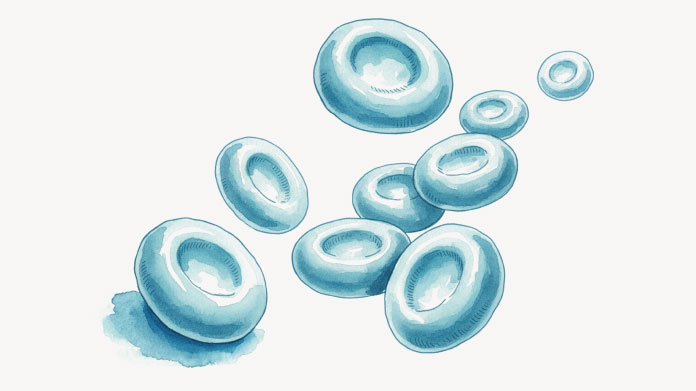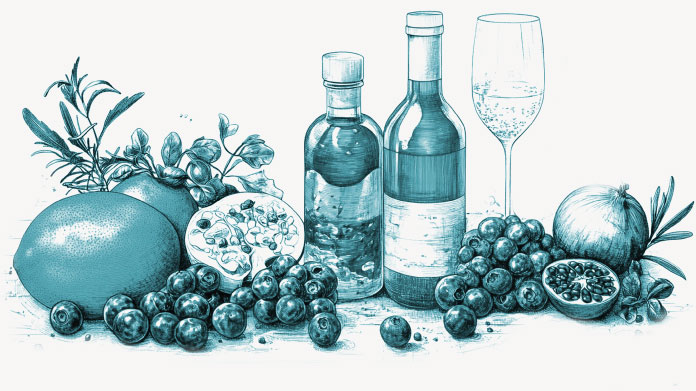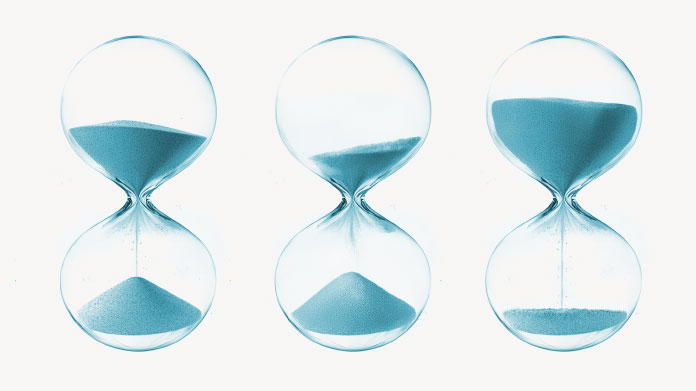Anti-ageing proteins: what are they?
A number of proteins and amino acids are being studied for their potential effects on human longevity. Here we take a look at 3 key anti-ageing proteins and the various ways they can be used to help ‘hold back time’.
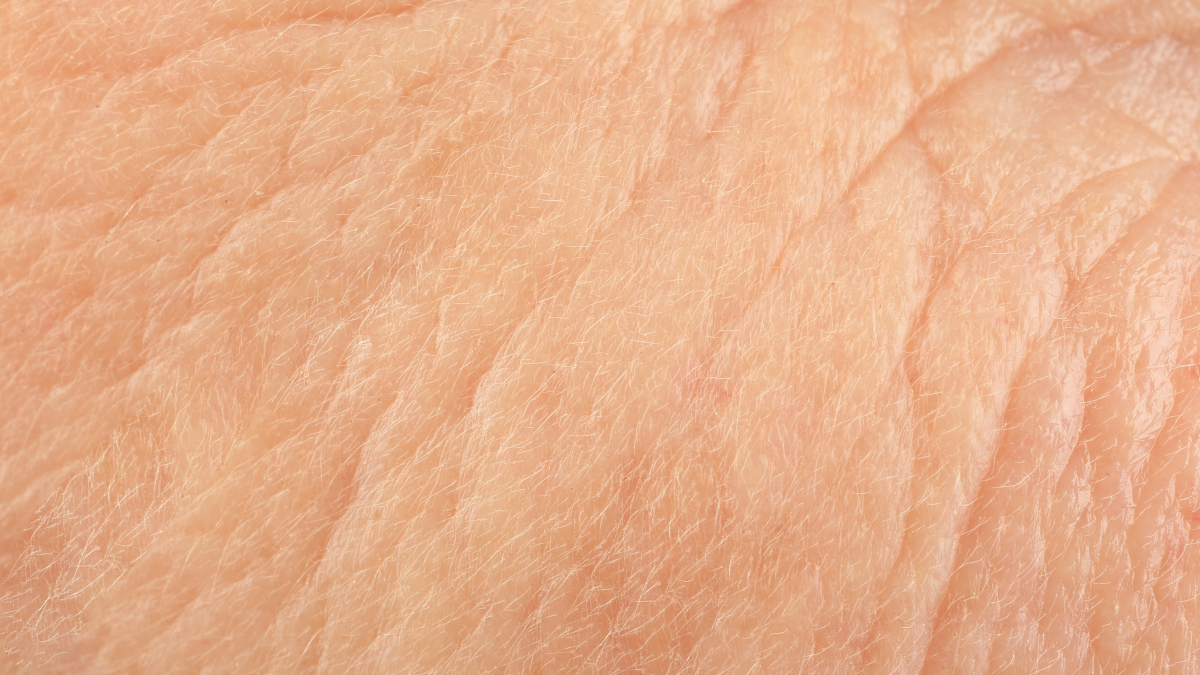
Collagen, crucial for maintaining youthful skin
The skin is composed primarily of water, as well as elastin and collagen, two proteins which help maintain its elasticity and resistance.
Unfortunately, production of these two proteins declines with age, leading to the appearance of fine lines and wrinkles, especially in areas of the body exposed to sunlight. By the age of 60, the skin has actually lost more than a third of its total collagen, synthesis having decreased by 1.5% a year from the age of 25.
To reduce these visible effects of ageing, one solution is to stimulate endogenous collagen production. You can, for example, increase your vitamin C intake (the liposomal version has excellent bioavailability) as it plays a key role in collagen formation. Many people also choose to consume collagen directly (via meat broths or collagen supplements, for example) in order to provide the body with the components necessary for its production (see Marine Collagen).
However, ageing is not the only factor responsible for falling collagen levels, so here are three tips to help you maintain your ‘collagen capital’:
- don’t smoke. Second only to repeated UV exposure, smoking is a major accelerator of skin ageing. Over the long term, it leads to increased activation of collagenase, the enzyme that breaks down collagen;
- limit prolonged exposure to the sun, especially in summer when the UV index is high. It’s a delicate balancing act though, as exposure to the sun’s rays also enables the body to produce essential vitamin D;
- focus on reducing your sources of stress, a sworn enemy of collagen, through frequent use of massage (it stimulates collagen production).
Carnosine as a potential inhibitor of glycation
The breakdown of proteins including collagen is another mechanism of ageing (1). Over time, proteins in the body increasingly fall victim to a process called glycation. In becoming ‘glycated’, they lose their function, and in some cases, accumulate in the body, negatively affecting how functional cells, organs, and indeed our entire bodies, work. Those most affected include albumin, insulin, haemoglobin, immunoglobulins, lipoproteins, and of course ... collagen.
Among the potential inhibitors of this process is carnosine, a dipeptide (a potential ‘piece’ of protein) which the body produces itself. The problem is that levels of carnosine in the body also decline as we get older. Past the age of 70, muscle concentrations of carnosine fall by more than 60%, which partly explains the loss of muscle associated with ageing. That’s why carnosine (see the supplement Carnosine) is sometimes considered to be an ‘anti-ageing’ protein.
There are other potential ways of reducing the glycation process over the long term:
- Drink small amounts of water throughout the day, even when you’re not thirsty. Drinking water is important for reducing glycation.
- Keep your skin well-hydrated, with the aid of water-based moisturising gels.
- Eat a healthy, balanced diet, avoiding refined sugars (glycation is a chemical reaction involving sugar).
Sirtuins to boost DNA repair and slow down ageing
There’s a whole family of proteins, known as ‘youth proteins’, called sirtuins.. They act on a number of cellular mechanisms associated with ageing such as DNA repair, resistance to oxidative stress and combatting inflammation. But once again, their levels decline with age. And since we can’t supplement with sirtuins, we have to rely on two compounds, which according to several studies, are likely to activate their production: NAD, an essential coenzyme present in cells (2-3) and AMPK, a protein kinase, another worthy holder of the title ‘anti-ageing protein’.
With regard to NAD, supplementation is ineffective as the compound is broken down in the gut (4). But that doesn’t happen to its precursors, nicotinamide riboside (NR) which is considered to be potential ‘anti-ageing’ substance for this very reason. The same goes for AMPK: we need to use compounds that activate its internal production and which are able to get past the intestinal barrier. The formulation AMPK Booster from SuperSmart contains compounds of this sort: berberine, fisetin and gypenosides.
Tips for boosting sirtuin production:
- increase your intake of tryptophan (found in wholegrain rice, dairy products, eggs, soy protein, peanuts, pulses, nuts) to support NAD synthesis;
- make sure you consume raw, unprocessed vegetable products which can contain NAD precursors;
- gradually increase your level of moderate, regular exercise as it stimulates production of both NAD and AMPK;
- reduce the number of calories you consume (calorie restriction) throughout life, though we accept this is probably the hardest measure to apply.
SUPERSMART ADVICE
References
- Ghodsi R, Kheirouri S. Carnosine and advanced glycation end products: a systematic review. Amino Acids. 2018 Sep;50(9):1177-1186. doi: 10.1007/s00726-018-2592-9. Epub 2018 Jun 1. PMID: 29858687.
- Hall et al., 2013 J.A. Hall, J.E. Dominy, Y. Lee, P. Puigserver, The sirtuin family’s role in aging and age-associated pathologies J. Clin. Invest., 123 (2013), pp. 973-979
- Haigis and Sinclair, 2010 M.C. Haigis, D.A. SinclairMammalian sirtuins: biological insights and disease relevance Annu. Rev. Pathol., 5 (2010), pp. 253-295
- Gross and Henderson, 1983, C.J. Gross, L.M. Henderson, Digestion and absorption of NAD by the small intestine of the rat J. Nutr., 113 (1983), pp. 412-420
Keywords
4 Days
very good expereince
very good expereince
Jelena Đaković
4 Days
Very good products.
Very good products.
Agnes BENDSAK
6 Days
Just OK
Just OK, ordering from company for many years and being safisfied
Lynn Mae
7 Days
Recomendo
Produtos encomendados são recebidos atempadamente e de acordo com o anunciado! Muito satisfeita!
Carla Sofia
7 Days
Everything is great!
Everything is great!
Jonas
12 Days
The delivery was fast and the product…
The delivery was fast and the product is great
SOMMARIVA Gianni
13 Days
Great service and lots of information
Great service and lots of information
Gabi
16 Days
Service Satisfaction
I’m satisfied with the service; it fulfilled what it set out to do.
Anfhony Abreu
19 Days
Original product and fast delivery
Original product and fast delivery. I haven't started it yet, but will do soon.
Vincenza Catania
22 Days
Good quality
Good quality. Good service.
Leonel Guzman
24 Days
Top!!!!!!!!
Top!!!!!!!!
Michael
26 Days
Excellent!
Products are great and delivered fast!
PARDINI Debora
27 Days
From order to receive the product
From order to receive the product, the process is smooth & fast. It’s good to customers.
WONG Mei Ling
28 Days
Fast delivery
very quick delivery to italy. product is good.
Customer
29 Days
Prompt delivry !!👍
Prompt delivry !!👍
SWEET Christine
of experience
your money back
##montant## purchase


